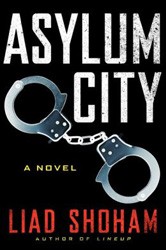By
– January 9, 2012
Few social enclaves lend themselves so well to satire as those of the university elite, and one need only look as far as Roger Rosenblatt’s new novel Beet and Michael Blumenthal’s rereleased Weinstock Among The Dying to experience the rich possibilities within this genre. In Rosenblatt’s Beet, English and American literature professor Peace Porterfield is attempting to save the nearly bankrupt Beet College from corruption, incompetence, and apathy. Among those responsible for hastening Beet’s downfall are Joel Bollovate, the dishonest chair of the Board of Trustees, who has misused the endowment, and Matha Polite, the precocious student poet, Southern belle, and ridiculously misguided leader of a radical student group. While most of the faculty is amusingly presented as a group far more interested in their specialized hobby-horses than in saving the school, Peace Porterfield is different. Peace is a throwback to the ideal of the 1960’s liberal arts professor, deeply invested in his students’ education, even as they attempt to bring down the university by taking part in ill-advised protests. Rosenblatt provides plenty of side-splitting moments throughout, including the tale of Beet’s humble beginning as a 17th century pig farmer’s charitable project, and references to an increasingly trendy set of course offerings, such as “Humor and Meteorology” and “Serial Killers of the Northwest.”
While Beet explores the university through Porterfield’s struggles, Michael Blumenthal’s Weinstock Among the Dying begins with a broad overview of the academy, and gradually focuses in on the aging narrator, Martin Weinstock. Weinstock, a poet and up-and-coming creative writing professor at Harvard, is haunted by thoughts of death and by a family history he cannot shake. He tells his story in a discursive, original style, with frequent flashbacks and incisive literary puns and references. Many chapters even deftly invoke the works of Sophocles, Keats, or Shakespeare, as Weinstock attempts to fit his trials into the Western literary canon. In some ways, Weinstock Among the Dying calls to mind the archetypal campus novel — a male professor’s bumbling attempts to manage multiple student love interests while also vying for tenure — but Blumenthal advances the form by cross-weaving the campus tale with that of Weinstock’s introspective memoir.
Additional Book Featured in Review
Phil Sandick is a graduate of the University of Pennsylvania and the University of Wisconsin-Madison. He has taught courses in literature, composition, and creative writing since 2006. Phil is currently studying rhetoric and composition at the University of North Carolina-Chapel Hill.





